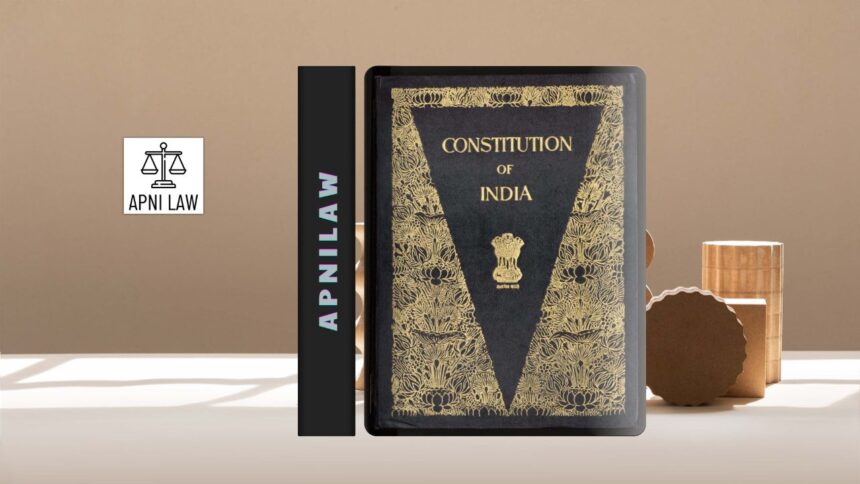Introduction
The framers of the Indian Constitution aimed to create a society based on equality, dignity, and justice. To achieve this vision, they included specific provisions under the Right to Equality. One such provision is Article 18, which abolishes titles that create artificial distinctions among citizens. This article ensures that every individual in India stands on equal footing, free from hierarchical recognition that undermines democracy. By studying Article 18, we can understand how the Constitution safeguarded the principle of equality by rejecting privileges based on social status, wealth, or patronage.
Understanding Article 18 of the Constitution
Article 18 prohibits the state from conferring any titles, except for academic or military distinctions. This means that titles such as “Sir,” “Raja,” or “Maharaja,” which once symbolized superiority and social hierarchy, cannot be legally recognized in independent India. The article also restricts Indian citizens from accepting titles from foreign states. By doing this, the Constitution eliminated remnants of feudalism and colonial honor systems, reinforcing India’s democratic values. Academic titles like “Doctor” or “Professor” remain valid as they signify educational achievement, not social privilege.
Historical Background of Abolition of Titles
During colonial rule, the British used titles such as “Rai Bahadur,” “Khan Bahadur,” and “Sir” to reward loyalty and divide Indian society. These titles created an elitist class that often collaborated with colonial rulers. The leaders of the freedom movement strongly opposed such practices. When drafting the Constitution, the Constituent Assembly agreed that independent India could not carry forward a system that perpetuated inequality. Thus, Article 18 became a crucial step in erasing social hierarchies rooted in feudal and colonial traditions.
Scope and Significance of Article 18
The scope of Article 18 is wide, as it applies not only to the state but also to individuals. Citizens are forbidden from accepting titles from foreign powers, ensuring that no external authority influences Indian democracy. This article also complements Articles 14 to 17, which collectively guarantee equality before law, prohibit discrimination, and abolish untouchability. Together, they form the backbone of India’s equality framework. The significance of Article 18 lies in its ability to promote meritocracy. In a society where honor is earned through hard work and talent rather than inherited titles, democracy flourishes.
Judicial Interpretation and Cases
The judiciary has reinforced the importance of Article 18 in several decisions. In Balaji Raghavan v. Union of India (1996), the Supreme Court examined whether national awards like Bharat Ratna and Padma awards violated Article 18. The Court ruled that these awards do not breach Article 18 since they recognize merit and service to the nation, and are not hereditary titles that create social inequality. However, the Court also clarified that recipients cannot use these awards as prefixes or suffixes to their names, ensuring that awards remain honors and not titles.
Contemporary Relevance
Even after decades of independence, Article 18 continues to play a critical role. While formal titles have been abolished, society still grapples with informal hierarchies based on caste, wealth, and political influence. Article 18 acts as a constitutional reminder that India must not return to a system where people are valued based on inherited status. By promoting equal recognition of all citizens, Article 18 aligns with the larger goal of creating a society where dignity and equality are the guiding principles.
FAQ Section
1. What does Article 18 of the Indian Constitution mean?
Article 18 abolishes titles in India, ensuring that no individual receives privileges based on inherited or honorary recognition. It allows only academic or military distinctions to honor merit and service.
2. Can national awards like Bharat Ratna or Padma awards violate Article 18?
No, the Supreme Court clarified in Balaji Raghavan v. Union of India that these awards do not violate Article 18 because they recognize contributions to the nation. However, recipients cannot use them as titles before or after their names.
3. Why is Article 18 important in modern India?
Article 18 remains relevant because it prevents the return of feudal or colonial-style privileges. It ensures equality among citizens and promotes a system where recognition is based on merit, service, and achievement rather than status or influence.
Conclusion
Article 18 of the Indian Constitution abolished titles and ended a legacy of inequality carried over from feudal and colonial times. It ensures that no citizen enjoys privileges based on titles and that honors are granted only on the basis of merit and service. By removing artificial social distinctions, the article strengthens democracy and equality in India. Its relevance continues as society works toward eliminating not only legal but also social barriers to equality. The abolition of titles symbolizes the vision of the Constitution, an India where every citizen stands equal, without inherited privilege or discrimination.
For any specific query call at +91 – 8569843472








Mere gadi ka ragistration nahi kara Raha hai soroom wala 4mahina ho gaya hai